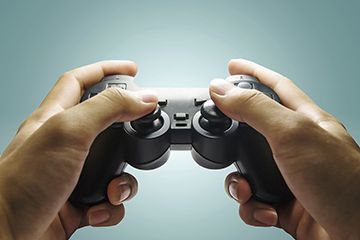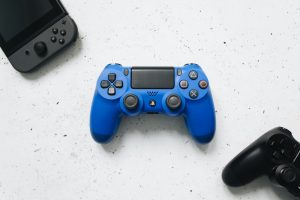
Hand-eye coordination is a crucial skill that allows individuals to perform tasks that require the synchronization of visual information and motor skills. In recent years, the rise of gaming has sparked debates about its impact on hand-eye coordination. Some argue that excessive gaming can negatively affect this skill, while others believe that gaming can actually enhance hand-eye coordination. This article aims to analyze the impact of gaming on hand-eye coordination and provide insights into this hotly debated topic.
The Basics of Hand-Eye Coordination
Before delving into the impact of gaming, it is important to understand what hand-eye coordination entails. Hand-eye coordination refers to the ability to process visual cues and translate them into appropriate physical movements. Whether it’s catching a ball, driving a car, or playing a musical instrument, hand-eye coordination plays a fundamental role in performing these tasks seamlessly.
The Positive Effects of Gaming on Hand-Eye Coordination
Improved Reaction Time: Gaming often requires quick reflexes and rapid decision-making. Players must react to visual stimuli on the screen while coordinating their physical actions accordingly. This constant practice can enhance an individual’s reaction time and improve their overall hand-eye coordination.
Enhanced Visual Perception: Many video games feature visually complex and fast-paced environments. Players must process and react to various visual stimuli simultaneously. This continuous exposure to such stimuli can enhance visual perception, enabling gamers to better interpret and respond to visual cues in their surroundings.
Fine Motor Skill Development: Gaming can involve intricate and precise control of virtual characters or objects. Actions, such as aiming, shooting, or maneuvering through complex mazes, require dexterous hand movements. Regular gaming can contribute to the development of fine motor skills, leading to improved hand-eye coordination.
The Negative Effects of Gaming on Hand-Eye Coordination
On the flip side, excessive gaming or unhealthy gaming habits can have negative consequences for hand-eye coordination:
Physical Inactivity: Extended periods of gaming can lead to a sedentary lifestyle, reducing overall physical activity. Lack of physical movement may hinder the development and maintenance of hand-eye coordination.
Eye Strain and Fatigue: Staring at screens for prolonged periods can strain the eyes and cause fatigue. These conditions can negatively impact hand-eye coordination, as visual processing may become slower and less accurate.
Musculoskeletal Issues: Poor posture and repetitive actions associated with gaming can lead to musculoskeletal problems. Discomfort or pain in the hands, wrists, or arms can affect hand-eye coordination and impair performance in other daily activities.
Striking a Balance
Enjoying the benefits of gaming on hand-eye coordination while mitigating the potential negative effects requires striking a balance. Consider the following approaches:
Moderation: Limiting gaming sessions to reasonable durations and incorporating breaks can help prevent excessive screen time and maintain overall physical well-being.
Physical Activity: Engaging in regular physical exercise and stretching can counterbalance the sedentary nature of gaming, promoting better hand-eye coordination and overall health.
Eye Care: Adhering to the 20-20-20 rule – looking away from the screen every 20 minutes and focusing on an object 20 feet away for 20 seconds – can help reduce eye strain and maintain optimal visual processing.
Ergonomics: Using ergonomic equipment and maintaining proper posture while gaming can prevent musculoskeletal issues and support better hand-eye coordination.
Conclusion
In conclusion, gaming can have both positive and negative effects on hand-eye coordination. While regular gaming, in moderation, can improve reaction time, enhance visual perception, and develop fine motor skills, excessive gaming or poor gaming habits can lead to physical inactivity, eye strain, and musculoskeletal problems that can hinder hand-eye coordination.
By striking a balance between gaming and maintaining a healthy lifestyle, individuals can enjoy the benefits of gaming while ensuring their hand-eye coordination remains sharp. Remember to moderate gaming sessions, incorporate physical activity, take care of your eyes, and prioritize ergonomics for optimal results. Hand-eye coordination is a skill that can be improved through conscious efforts and a well-rounded approach to gaming and overall well-being.


